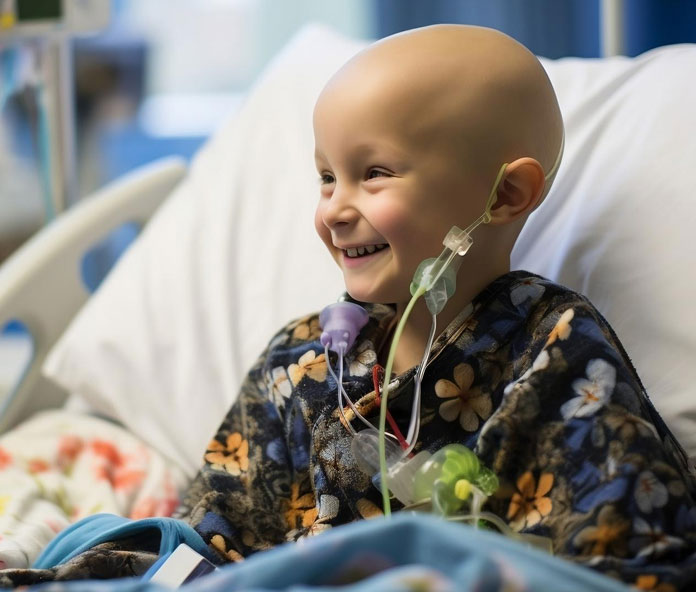


Pediatric cancer refers to cancers that occur in children and adolescents. These cancers are biologically distinct from adult cancers and often require specialized approaches to diagnosis and treatment. The most common types of pediatric cancers include leukemia, brain and central nervous system tumors, neuroblastoma, Wilms tumor, and lymphomas.
Leukemia:
- The most common type of childhood cancer, affecting the blood and bone marrow.
- Acute lymphoblastic leukemia (ALL) and acute myeloid leukemia (AML) are the main subtypes.
Brain and Central Nervous System (CNS) Tumors:
- These tumors can occur in different parts of the brain and spinal cord.
- Medulloblastoma, gliomas, and ependymomas are examples.
Neuroblastoma:
- A cancer that develops from immature nerve cells.
- It often begins in the adrenal glands, which are located on top of the kidneys.
Wilms Tumor:
- A kidney cancer that primarily affects children.
- It usually occurs in children around the age of 3 to 4.
Lymphomas:
- Hodgkin lymphoma and non-Hodgkin lymphoma can occur in children.
- These cancers affect the lymphatic system, which is part of the immune system.
Treatment:
- Pediatric cancer treatment plans are individualized and may include surgery, chemotherapy, radiation therapy, and immunotherapy.
- Pediatric oncologists work closely with multidisciplinary teams to tailor treatments to each child's specific condition.
Prognosis:
- Advances in treatment have significantly improved the prognosis for many pediatric cancers.
- Survival rates vary depending on the type and stage of cancer.
Support and Survivorship:
- Pediatric cancer survivors may face long-term health effects, and survivorship care plans are often provided.
- Supportive care, including psychosocial support for patients and families, is a crucial aspect of pediatric cancer care.
Research and Advocacy:
- Ongoing research aims to develop targeted therapies with fewer side effects.
- Advocacy organizations play a vital role in supporting research, raising awareness, and providing resources for families.
Early detection, prompt medical attention, and comprehensive, family-centered care are crucial for improving outcomes in pediatric cancer. Advances in research and ongoing collaboration among healthcare professionals, researchers, and advocacy groups continue to make strides in the field of pediatric oncology.